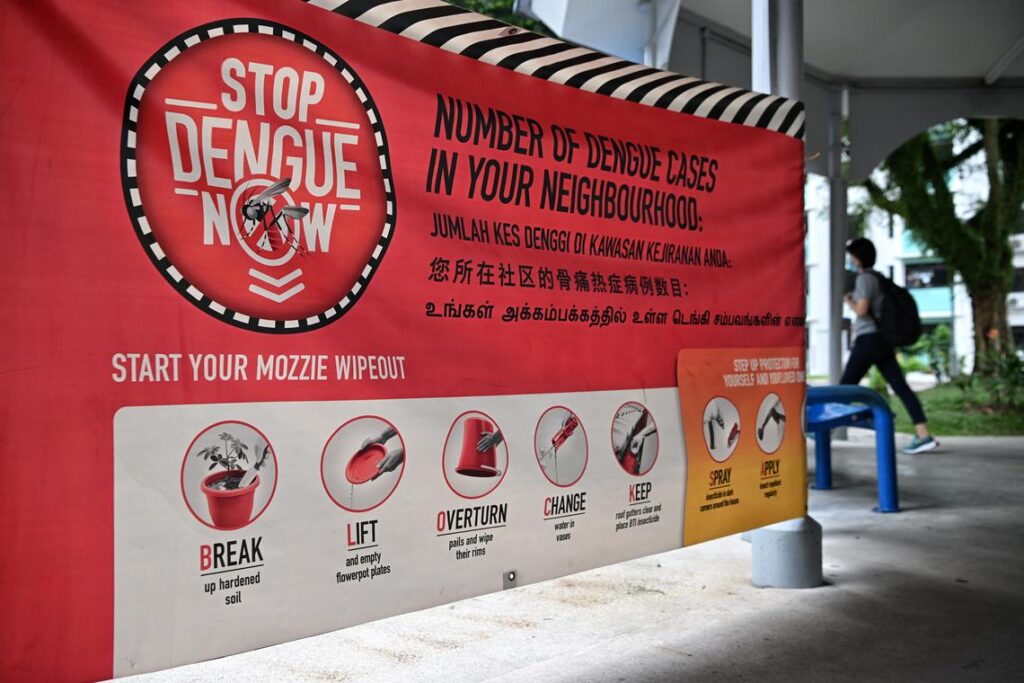
Singapore experienced a notable increase in dengue cases in 2024, with more than 13,600 cases reported a rise of over 36% compared to the 9,949 cases recorded in 2023, according to the National Environment Agency (NEA).
Despite the sharp uptick, the NEA attributed the containment of large outbreak clusters to Project Wolbachia and consistent community efforts in preventing mosquito breeding. The mid-year surge in dengue cases, which could have led to more widespread outbreaks, was effectively subdued due to these combined measures.
“This was achieved despite a high baseline of dengue cases, low population immunity, and elevated mosquito populations in certain areas,” the NEA noted.
The Role of Project Wolbachia
Initiated in 2016, Project Wolbachia involves introducing Wolbachia bacteria to male mosquitoes in controlled laboratory environments. These altered mosquitoes, when released into high-risk dengue areas, mate with female mosquitoes, preventing their eggs from hatching. Over time, this targeted approach reduces the overall mosquito population, playing a critical role in combating the dengue epidemic.
Current Trends and Risk Factors
Between December 29, 2024, and January 4, 2025, 110 new dengue cases were reported—39 more than the previous week. As of January 6, there were 14 active dengue clusters across Singapore, with three high-risk zones identified in Bedok, Sixth Avenue, and Ang Mo Kio.
Among the four circulating dengue virus serotypes in Singapore, serotype 2 (DenV-2) has been predominant since September 2023, following earlier dominance by DenV-1 and DenV-3. NEA emphasized that the population’s immunity to all serotypes remains low, heightening the risk of future surges if preventive measures are not maintained.
Understanding the Surge
According to Professor Paul Tambyah, a leading expert and former president of the International Society for Infectious Diseases, the primary driver of the spike in 2024 was the shift in the predominant dengue virus serotype. Such switches often leave a significant portion of the population vulnerable to symptomatic infections due to a lack of immunity to the new strain.
Additionally, 2024 was one of the hottest years on record, with hot and wet conditions contributing to increased mosquito activity. These environmental factors, while challenging to quantify precisely, likely exacerbated the surge.
Call for Vigilance
The NEA has urged the public to remain vigilant by eliminating stagnant water in their surroundings and maintaining clean environments to prevent mosquito breeding. Simple actions like this can significantly reduce the risk of dengue transmission.
As Singapore continues to combat dengue, the success of programs like Project Wolbachia, coupled with community efforts, highlights the importance of collective action in mitigating the impact of this mosquito-borne disease.
Stay informed on the latest health news and updates by exploring our health portal, where we provide valuable insights through articles, blogs, and videos dedicated to health awareness.








